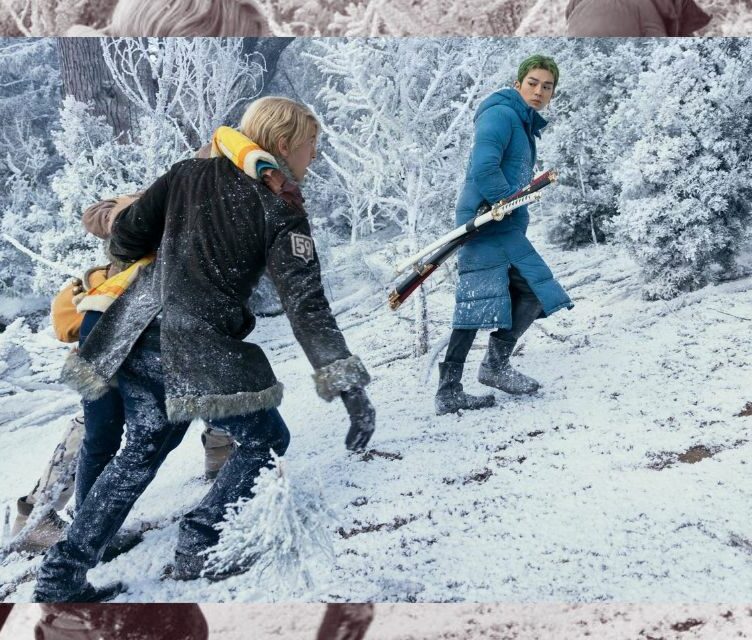SCIENCE says the human brain employs memory to encode, store, and retrieve certain information. Our memory serves as a record of past experiences—from grand to the imperfect ones—that, in turn, directs our future actions.
Memory often plays as our reminder of continuous wanders, and ventures in love, while at the same time causing havoc when the bitterness of yesterday stings bad. Still, it seems comparable to a massive box in the attic where our old photos sleep, looking dusty and aged to visit for, yet holding pivotal experiences worth cherishing every once in a while.
Some people prefer to keep their emotions written inside letters, to poems that are not enough—hence, you paired them with roses, to songs poured with affections, and photo albums to preserve them along with the stories they contain. As Ed Sheeran once said, “We keep this love in photograph.” In today’s modern society, expressing love has become culturally complex and quite different from the traditional way we used to know or probably grew up with.
According to Kate Burrows (2023) in her article published in About Generations, while romance was treasured by previous generations, young people today have more expansive ideas about love and connection. Technology has paved the way to communicate our love in various ways, languages, or forms we desire. It has transformed the way we experience romance, allowing us to reconnect to the old pages of our love stories.
Aside from the apparent changes, our archives of love live in the digital realm.
The so-called “digital love.” Saving screenshots of sweet messages from our loved ones, photos, voice messages, or even shared Spotify playlists. Reflecting the distinct essence of modern romance, enjoying the solace of the love within. Sounds more ideal than revisiting crumpled papers in the basement, only to remember it was once bathed with pure tears caused by genuine love.
These digital keepsakes could be deeply personal and fragile, existing in their little safe spaces where they can be cherished when missed, or erased with a single click. Thus, what follows the innumerable whys. Why do we save the traces of past love that we know will only cause us anguish or return us to the agony we have spent months and years trying to escape? Why open those wounds that nearly killed the hope of finding another love one day? Why do we do it? What do these archives say about us and our relationships? And how does revisiting them shape our experience of love, both its joy and its pain?
Here’s the answer to the first why.
#1. The Act of Archiving. What do we usually archive?
For Limwel (22), “Mga pictures, screenshots ng convo.” Many Gen Z individuals frequently take screenshots of private chats as a way to hold onto “receipts.” Moreover, this practice has gained popularity across different social media platforms, where users participate in saving meaningful moments and the narratives associated with them. While, for Kurt (25), who is currently in a 5-year relationship with his girlfriend, “Pictures namin, mga pictures niya rin na inasend niya sa akin, kapag may lakad siya, or tsaka kapag may inabili siyang mga bagong outfits. Mga conversations rin noong una, mga sweet messages noong panahong nasa ligawan phase.” Likewise, for Cirene (22), “For me, pictures talaga. They serve as remembrances.”
#2. Archives and Why?
Kurt responded,“Para sa mga memories, feeling ko kasi, for worst case scenario, kung halimbawa, may makalimot, edi may paalala.” On the other hand, for Limwel, he typically keep archives whenever…“Kapag ina-kilig, ‘yung mga parts na nakakakilig.” Meanwhile, Cirene said, “As for me naman, I archive para mag-preserve ng mga memories, and have something to look back on. Para sa akin, keeping receipts is like holding onto small pieces of my life.”
#3. The Act of Archiving as Self-Love.
As per Kurt, “Ang ginagawa ko ay ina-compare ko ‘yung dating ako when it comes to relationship. Kung mas okay ba ako ngayon compare sa ibang naging [past] relationship[s] ko. Napapansin ko na nung dati, mas bata pa ako noon so ‘yung way ko ay parang immature pa, kung paano nagha-handle ng problema. Parang toxic pa ‘yung ugali.” On the other hand, Limwel thought of the act of archiving as self-love through accepting what was long gone. “Oo, pwede. Doon mo mare-realize na wala na, may acceptance.” For Cirene, “Form siya ng self-love because it allows me to cherish moments that might otherwise be forgotten. Bawat pieces of archives kasi ay may representation.”
#4. Importance of Love in Archive.
“Reference ng growth mo. Tsaka kung ano pa ‘yung mga bagay na dapat mo pang i-improve sa sarili mo,” Kurt said. Similarly, according to Limwel, it is more on being able to free yourself from the past. “May realization na moved on ka na. Kapag tinitingnan ko ang mga pictures, doon ko nare-realize na hanggang dun lang. Way din siya para i-improve ang self-growth.” Lastly, Cirene noted that, “Archiving is important for self-love because it helps me to appreciate the little things in life. Looking back at those archives reminds me of how I’ve spent my time, making me feel more connected to my journey.”
Keeping physical and digital remnants of our love has accompanied us through healing, to pursue loving ourselves once more. For love resides where we think it belongs, along with the fact that we hold onto the waves of memories despite the heart breaks and pains included. What was meant to be a lovely adventure together turned into a valuable lesson. Eventually, love began to feel different. For that, self-love is crucial. It encourages us to understand that love is intricate, where romance can hold deeper meanings beyond the involvement of others.
Our expressions of love can vary freely. Technology serves merely as a tool, a means to reflect on who we have become. It creates a space where the past resides, a place to explore yesterday, and a container that can be closed if we choose. According to science, the human brain utilizes memory for the processes of encoding, storing, and retrieving specific information. Is it possible for science to offer a step-by-step guide that teaches us how to let go of our vivid memories from the past?
With reports from Ivory Jade Q. Guizon
How useful was this post?
Click on a star to rate it!
Average rating 0 / 5. Vote count: 0
No votes so far! Be the first to rate this post.
We are sorry that this post was not useful for you!
Let us improve this post!
Tell us how we can improve this post?








